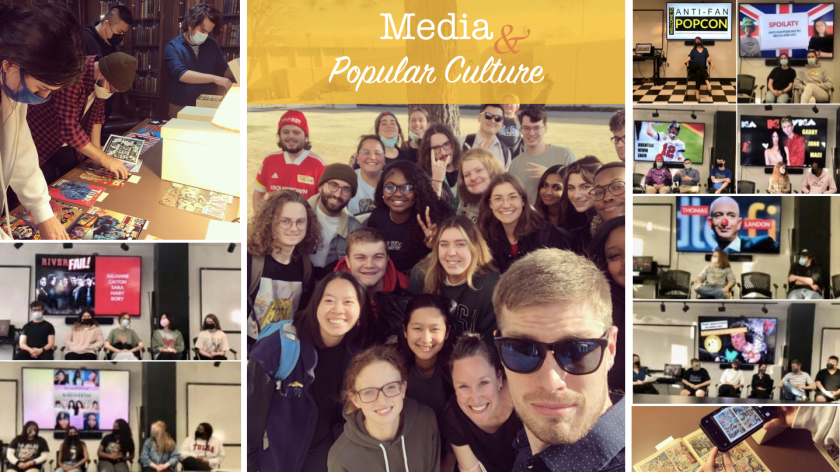For our finals period, my Media and Popular Culture students at the University of Tulsa prepared individual ranked lists of what they learned this semester—what they found most memorable, most eye-opening, most inspiring, most important; in short, what they’ll take with them into their media lives. During class, students discussed their rankings in small groups to develop a collaborative list. Each group then shared with the class to develop our collective top 9 ranking of concepts, ideas, and moments that resonated most with students this semester:
9 While depressing and infuriating to read, students will never forget the findings of the Women’s Media Center’s “The Status of Women in the U.S. Media 2021” report and USC’s “Inequality in 1,300 Popular Films: Examining Portrayals of Gender, Race/Ethnicity, LGBT & Disability from 2007 to 2019.” They document the relatively minimal progress made when it comes to under-representation in media industries and make proposals for real change.
8 We were lucky to visit our TU Special Collections in McFarlin Library to view their comic book collection, which included older texts and more contemporary publications. This ranked among some students’ favorite class memories and was a notable day for all of us. Here are some photos from our visit.
7 I left several days open on the syllabus for students to choose the topic of study, select the readings, and guide our class discussion. These student-led syllabus moments proved some of students’ favorites as we dove into topics they cared deeply about: women’s representation in sports media, film taste genres (including cult classics like The Room), meme culture, TikTok during the pandemic, and conspiracy theories.
6 The media circuit (or the circuit of culture) helped students to conceive of media not as discrete stages—such as production, consumption, and representation—but as dynamic, inter-related moments, adding enduring complexity to how they view the media they encounter in their daily lives.
5 Students enjoyed diving into fan studies, and because our course is cross-listed with Women’s and Gender Studies, students this semester especially appreciated learning about its gendered (and all-too-often misogynistic) aspects; meaning they loved learning key concepts from Suzanne Scott’s Fake Geek Girls: Fandom, Gender, and the Convergence Culture Industry.
4 Even if they come to the course with preconceived notions about media being manipulative, top-down, and all-controlling, students found theories of prosumption illuminating to consider consumers’ ambivalent agency, power, and meaning-making. They also enjoyed reading Henry Jenkins’ work on participatory culture and convergence culture.
3 Students continue to be challenged by, but ultimately adore, the day we spend on intersectionality and media representation. We discuss Ariane Cruz’s great article, “Gettin’ Down Home with the Neelys: Gastro-Porn and Televisual Performances of Gender, Race, and Sexuality,” and analyze student-selected images, video clips, and recipes from the show.
2 The theories of Stuart Hall strongly resonated with students, particularly the concepts of encoding and decoding; dominant, negotiated, and oppositional readings; and that “ordinary people are not cultural dopes.”
1 As I tweeted about here, students really enjoyed learning about anti-fandom—that is, how and why consumers form deep, affective, and often social relationships with media that they loath. Together we tried a new final group project format—podcasts—which students found memorable, challenging, useful, and fun, as they explored their own anti-fandom. They also liked our “Anti-Fan Pop-Con,” which used panel discussions as an energetic alternative to oral presentations.
Overall, students appreciated how our course was discussion-based and as focused on our classroom community and collective mental health as it was on theory, content, and creative assignments. Teaching and learning during a pandemic is hard, sometimes very hard. But this group of students did an outstanding job transitioning back into the classroom, learning despite significant challenges, fostering a supportive and engaged community, and mastering challenging concepts that will hopefully inform their media lives moving forward.
Lastly, students shared that despite their exhaustion during final’s week, the semester’s conclusion felt bittersweet. After three semesters that ended anticlimactically online with the click of a button, it’s been unexpectedly emotional to meet together as a group for the last time. I remind them and myself:
Our class may be ending, but you will always be my students.

I think you have an unusually good ability to engage students! Congratulations.
LikeLiked by 1 person
Thanks so much, Jan!
LikeLike